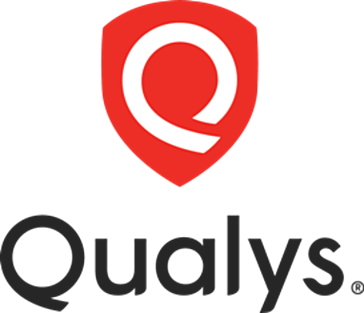ParseHub and Qualys integration
Save yourself the work of writing custom integrations for ParseHub and Qualys and use n8n instead. Build adaptable and scalable Development, workflows that work with your technology stack. All within a building experience you will love.


How to connect ParseHub and Qualys
Create a new workflow and add the first step
In n8n, click the "Add workflow" button in the Workflows tab to create a new workflow. Add the starting point – a trigger on when your workflow should run: an app event, a schedule, a webhook call, another workflow, an AI chat, or a manual trigger. Sometimes, the HTTP Request node might already serve as your starting point.
Build your own ParseHub and Qualys integration
Create custom ParseHub and Qualys workflows by choosing triggers and actions. Nodes come with global operations and settings, as well as app-specific parameters that can be configured. You can also use the HTTP Request node to query data from any app or service with a REST API.
Supported API Endpoints for ParseHub
Get project
Retrieve details of a specific project.
Run project
Initiate a run for a specific project.
List all projects
Retrieve a list of all projects.
Get project
Retrieve details about a specific project using its token.
Run project
This will start running an instance of the project on the ParseHub cloud.
List projects
This gets a list of projects in your account
Get last ready data
Returns the data of the last ready run for a project.
Get run
Retrieve details of a specific run.
Get data for run
Retrieve data for a specific run.
Get last ready data
Retrieve the last ready data from a run.
Cancel run
Terminate a specific run.
Delete run
Permanently delete a specific run.
Get run
Retrieve a specific run by its token
Get run data
Returns the data that was extracted by a run.
Cancel run
This cancels a run and changes its status to cancelled.
Delete run
This cancels a run if running, and deletes the run and its data.
To set up ParseHub integration, add the HTTP Request node to your workflow canvas and authenticate it using a generic authentication method. The HTTP Request node makes custom API calls to ParseHub to query the data you need using the API endpoint URLs you provide.
See the example hereThese API endpoints were generated using n8n
n8n AI workflow transforms web scraping into an intelligent, AI-powered knowledge extraction system that uses vector embeddings to semantically analyze, chunk, store, and retrieve the most relevant API documentation from web pages. Remember to check the ParseHub official documentation to get a full list of all API endpoints and verify the scraped ones!
Supported API Endpoints for Qualys
List Assets
Fetches a list of all assets.
Create Asset
Creates a new asset.
Get Asset
Fetches details of a specific asset by ID.
Update Asset
Updates a specific asset by ID.
Delete Asset
Deletes a specific asset by ID.
List Scans
Fetches a list of all scans.
Launch Scan
Launches a new scan.
Get Scan
Fetches details of a specific scan by ID.
Update Scan
Updates a specific scan by ID.
Delete Scan
Deletes a specific scan by ID.
List Reports
Fetches a list of all reports.
Generate Report
Generates a new report.
Get Report
Fetches details of a specific report by ID.
Update Report
Updates a specific report by ID.
Delete Report
Deletes a specific report by ID.
List Policies
Fetches a list of all policies.
Create Policy
Creates a new policy.
Get Policy
Fetches details of a specific policy by ID.
Update Policy
Updates a specific policy by ID.
Delete Policy
Deletes a specific policy by ID.
To set up Qualys integration, add the HTTP Request node to your workflow canvas and authenticate it using a predefined credential type. This allows you to perform custom operations, without additional authentication setup. The HTTP Request node makes custom API calls to Qualys to query the data you need using the URLs you provide.
Take a look at the Qualys official documentation to get a full list of all API endpoints
ParseHub and Qualys integration details
Save engineering resources
Reduce time spent on customer integrations, engineer faster POCs, keep your customer-specific functionality separate from product all without having to code.
Learn more
The SOAR platform you want
Mountains of monotonous tasks make building and monitoring your workflows a chore. Not anymore.
Learn more
FAQ
Can ParseHub connect with Qualys?
Can I use ParseHub’s API with n8n?
Can I use Qualys’s API with n8n?
Is n8n secure for integrating ParseHub and Qualys?
How to get started with ParseHub and Qualys integration in n8n.io?
Looking to integrate ParseHub and Qualys in your company?
The world's most popular workflow automation platform for technical teams including
Why use n8n to integrate ParseHub with Qualys
Build complex workflows, really fast


